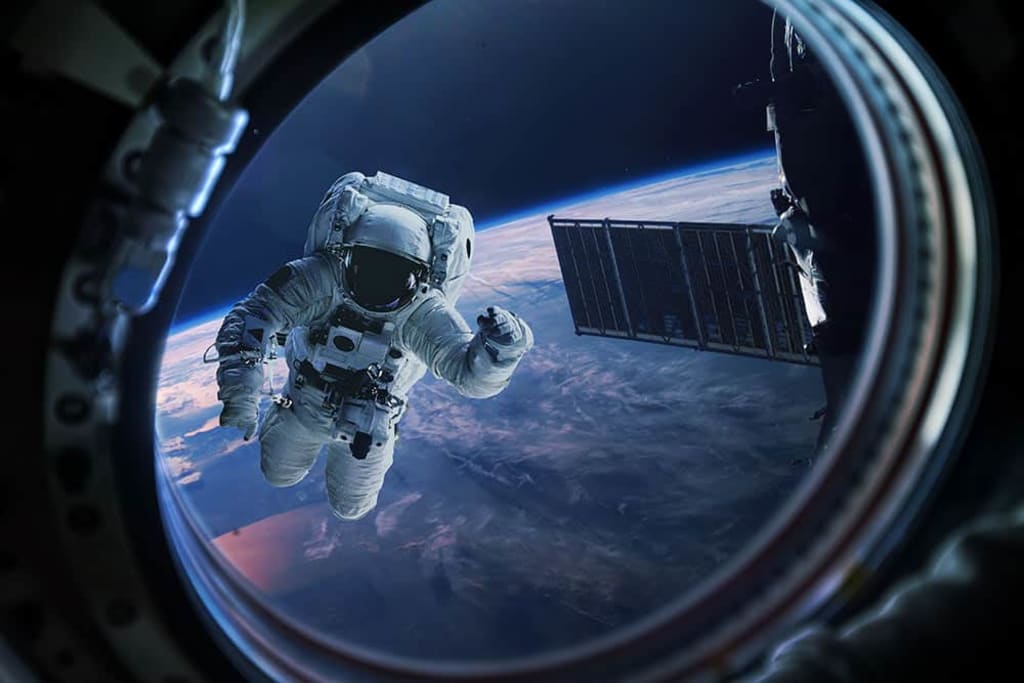SPACE
Exploring the Past, Present, and Future of Space Tourism

Space tourism is a growing industry that has been made possible by companies like SpaceX and Blue Origin. As these companies continue to make strides in space travel, it is becoming increasingly feasible for civilians to travel to space. While still a novelty experience for most, space tourism could become a popular form of travel in the future.
While space tourism has been a dream for many people for decades, recent technological advancements have made it a reality for a select few. In this article, we will explore the history of space tourism, the current state of the industry, and the potential future of space tourism.
The idea of space tourism has been around since the 1960s, but it wasn't until the early 2000s that the industry began to take shape. In 2001, the Russian government began selling seats on their Soyuz spacecraft to tourists for trips to the International Space Station (ISS). The first space tourist, American businessman Dennis Tito, paid $20 million for an eight-day trip to the ISS in 2001.
Since then, several other companies have entered the space tourism industry, offering a variety of space tourism experiences. In 2004, the company Space Adventures began offering spaceflight experiences to the public, including orbital flights around the Earth and suborbital flights that reach the edge of space. In 2018, SpaceX announced that Japanese billionaire Yusaku Maezawa would be the first private passenger to fly around the Moon in their spacecraft.
Currently, the space tourism industry is still in its infancy, with only a small number of people have traveled to space as tourists. The high cost of space tourism is a major barrier for most people, with tickets costing millions of dollars for even a brief trip to space. However, there are several companies working to make space tourism more accessible and affordable.
One of the most well-known companies in the space tourism industry is Virgin Galactic, which was founded by British billionaire Richard Branson. Virgin Galactic's SpaceShipTwo spacecraft is designed to take passengers on suborbital flights, reaching altitudes of around 100 kilometers above the Earth's surface. The company has already sold tickets to over 600 customers, with ticket prices starting at $250,000.
Blue Origin, founded by Amazon CEO Jeff Bezos, is another major player in the space tourism industry. The company is developing a reusable spacecraft called New Shepard, which is designed to take passengers on suborbital flights. Blue Origin has not yet announced when they will begin selling tickets or how much they will cost
Space tourism offers a unique opportunity for individuals to experience the thrill of spaceflight and to view the Earth from a new perspective. Companies like Virgin Galactic are already offering suborbital flights, while SpaceX has announced plans to send tourists around the moon shortly. As more companies enter the market and competition heats up, the cost of space tourism is likely to decrease, making it more accessible to the general public.
However, there are still many challenges to be addressed before space tourism can become a mainstream form of travel. Safety concerns are paramount, as spaceflight is inherently risky and requires a great deal of preparation and training. Additionally, the impact of space tourism on the environment and on the delicate balance of space debris must also be carefully considered.
Despite these challenges, space tourism offers an exciting glimpse into the future of space travel and exploration. As technology continues to advance and the cost of spaceflight decreases, space tourism will likely become an increasingly popular form of travel in the years to come. For those willing to take risks and embrace the unknown, space tourism offers an unparalleled adventure and an opportunity to explore the final frontier.






Comments
There are no comments for this story
Be the first to respond and start the conversation.